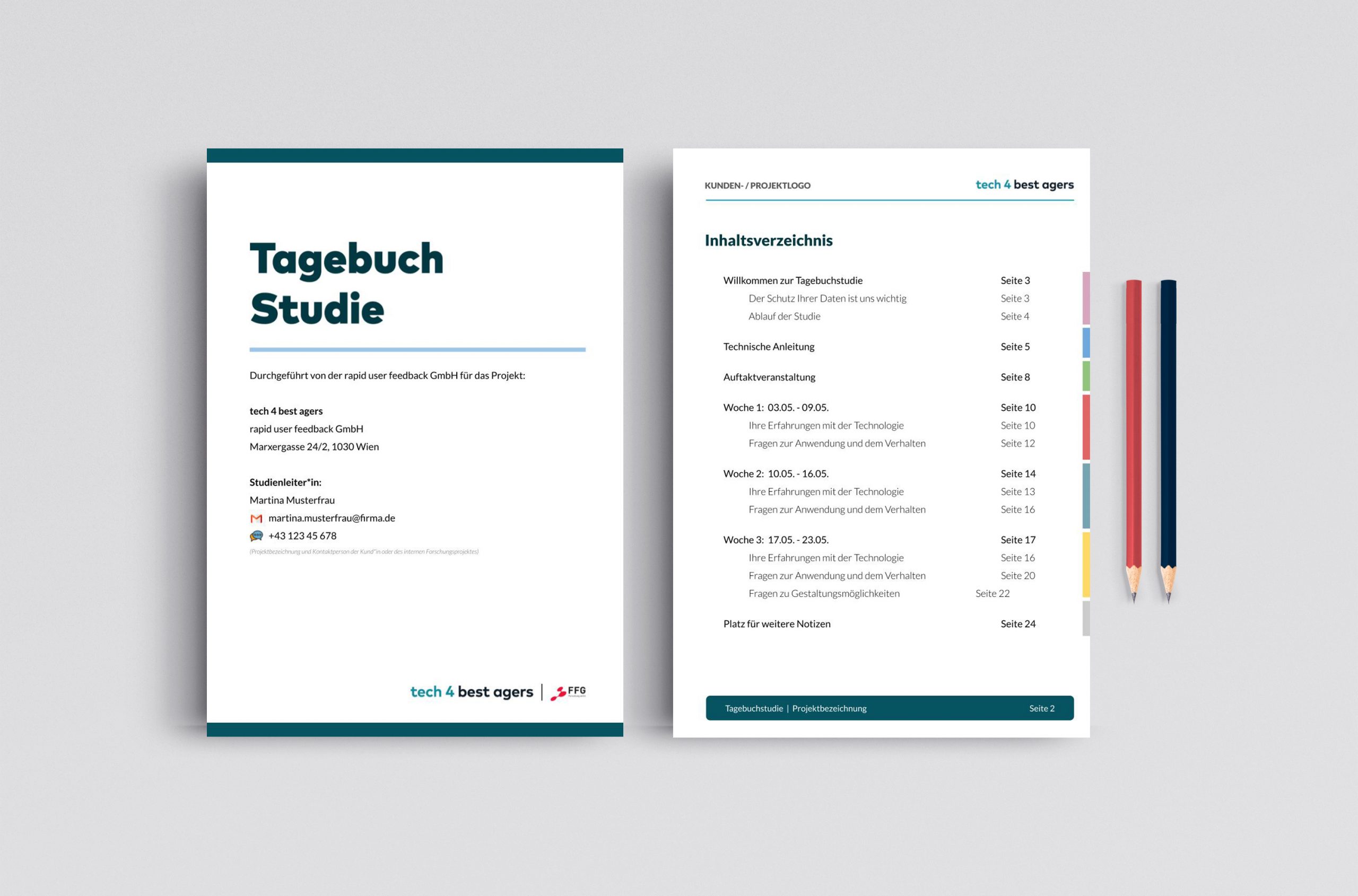Diary Studies & Experience Sampling
Wir bieten zwei Methoden zur Einholung von schriftlichem User*innen-Feedback aus dem wirklichen Leben.
Diary Studies
The Diary Study Method is closely related to the Experience Sampling Method (ESM). Most often it is employed as a qualitative survey method, but can also include quantitative elements (e.g., rating scales). Similar to the ESM method, study participants are asked to report on their everyday life and provide information about their thoughts, feelings, behaviors and/or environment.
Particularly suited for:
- Realistic insights into users’ thoughts and feelings, behaviors, and contexts over longer study periods (e.g., 1 week or 1 month)
- Less digital-savvy individuals
- Fixed survey intervals (e.g., “every day at the same time”)
Setting:
- Self-reports of users (“introspective”)
- In a quiet / undisturbed place (e.g., at home)

Experience Sampling
Experience Sampling is a qualitative and often also quantitative survey method from psychology, in which participants in studies are asked to provide information about their thoughts, feelings, behaviors and/or environment in the respective (everyday) situation in which they currently find themselves. These prompts may follow a specific schedule (e.g., “every Monday at 3:30 p.m.”) or be tied to specific events (e.g., “when participant has walked more than 5000 steps”).
Particularly suited for:
- Realistic insights into the thoughts and feelings, behaviors, and contexts of users over longer study periods (e.g., 1 week or 1 month)
- Digital-savvy individuals (on a smartphone, tablet)
- “Digital sampling” of photos and video
- Flexible survey intervals (contingent on specific events)
Setting:
- Self-reports of users (“introspective”)
- In a quiet / undisturbed place (e.g., at home or on the road)

